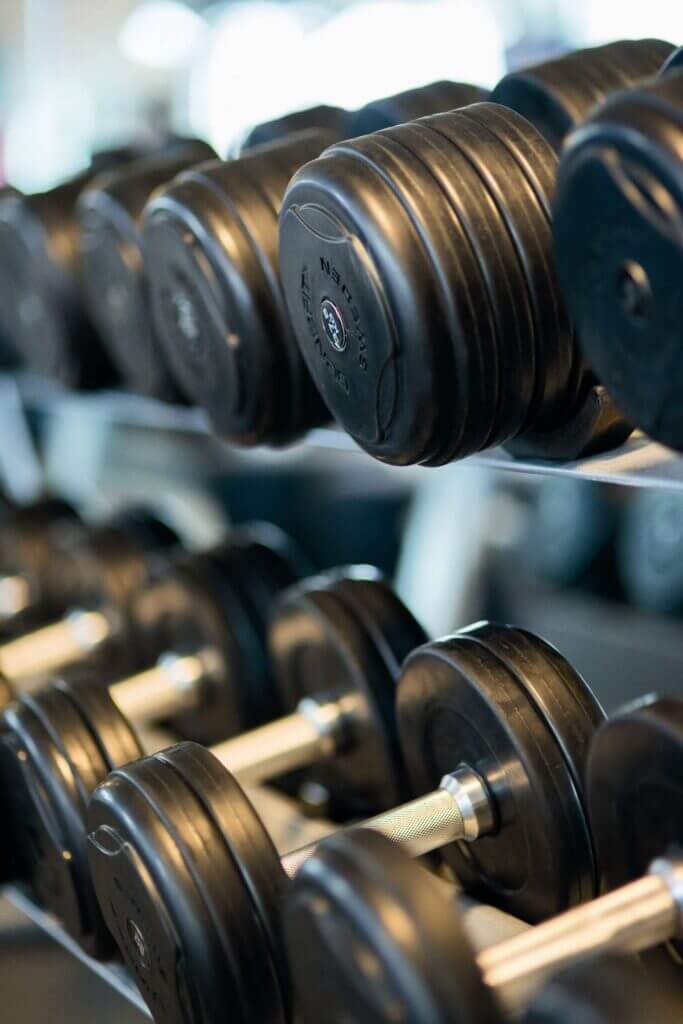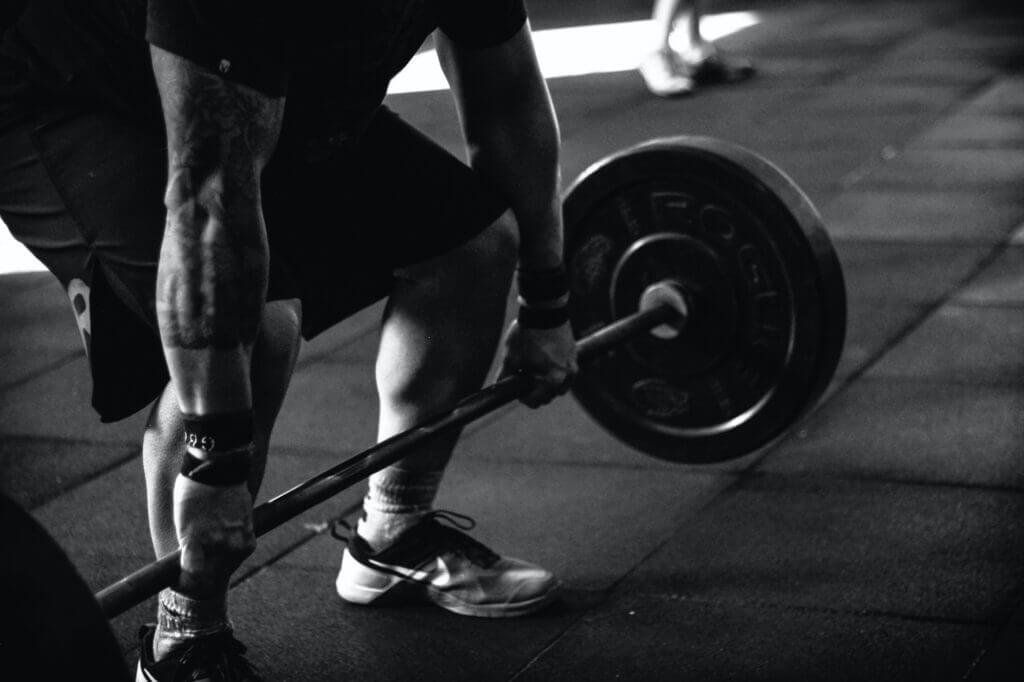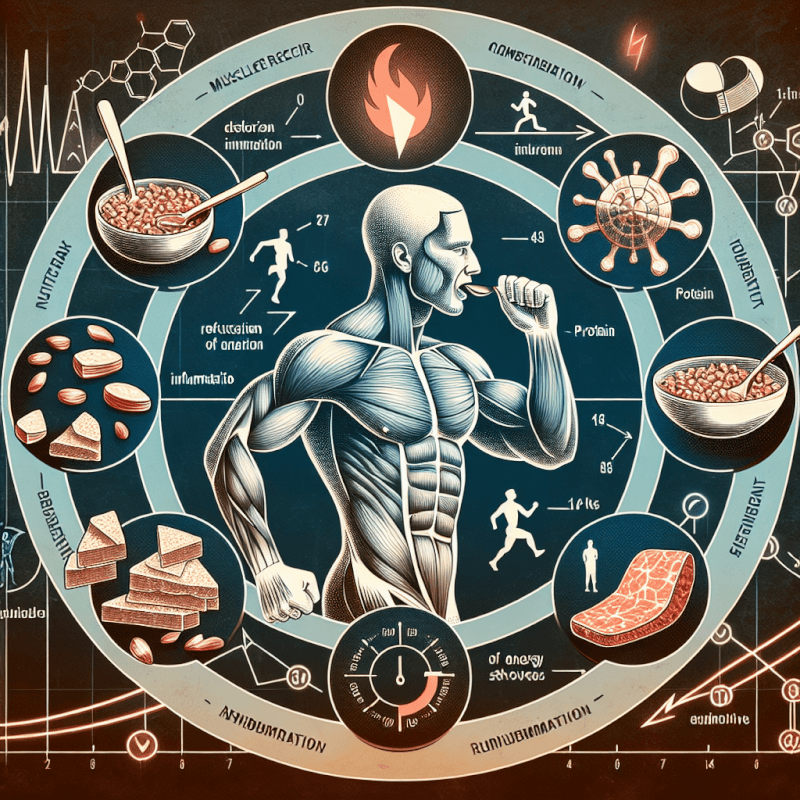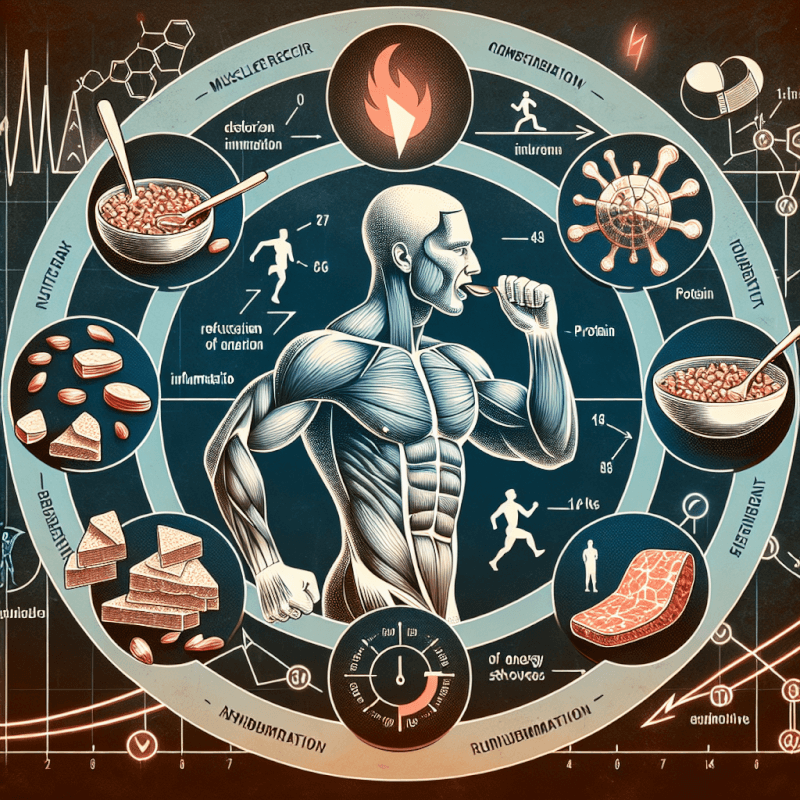In the world of fitness and exercise, it’s common knowledge that fueling your body with the right nutrients is crucial for optimal recovery after intense workouts. But how exactly can you use nutrition to support your post-workout recovery? This article will provide you with practical tips and insights on how to make the most out of your nutrition, helping you bounce back stronger and faster from your training sessions. So, if you’re ready to take your recovery game to the next level, let’s dive right in and explore the power of nutrition in supporting your post-workout journey.

Hydration
Importance of hydration for recovery
Hydration is crucial for promoting recovery after workouts. When you exercise, you lose water through sweat, which can lead to dehydration if not replenished adequately. Dehydration can negatively impact your athletic performance and hinder your body’s ability to repair and rebuild muscles. By maintaining proper hydration levels, you can optimize your recovery process and enhance your overall exercise performance.
Recommended fluid intake
To ensure proper hydration, it is recommended to consume an adequate amount of fluids throughout the day. The exact amount varies depending on factors such as your body weight, activity level, and environmental conditions. As a general guideline, aim to drink at least eight 8-ounce glasses of water per day. However, if you engage in intense workouts or exercise in hot and humid conditions, you may need to increase your fluid intake to compensate for fluid loss.
Signs of dehydration
It’s important to be aware of the signs of dehydration so you can take action to rehydrate promptly. Some common symptoms of dehydration include increased thirst, dry mouth, dark-colored urine, fatigue, dizziness, and muscle cramps. If you experience any of these signs, it’s crucial to consume fluids immediately to rehydrate your body.
Optimal timing of fluid consumption
Timing your fluid consumption is just as important as staying hydrated overall. Ideally, it is recommended to drink fluids before, during, and after your workouts. Pre-workout hydration helps ensure that you start your exercise session adequately hydrated. During your workout, sip on water or a sports drink to replenish fluids lost through sweat. Post-workout hydration is vital to help your body recover and rehydrate after intense physical activity.
Protein Intake
Role of protein in muscle recovery
Protein plays a crucial role in muscle recovery and repair. When you exercise, your muscle fibers experience microscopic damage, and protein provides the necessary building blocks for their repair and growth. Consuming an adequate amount of protein after your workouts can help speed up the recovery process, reduce muscle soreness, and promote muscle protein synthesis.
Recommended daily protein intake
The recommended daily protein intake for supporting muscle recovery varies depending on factors such as your body weight, activity level, and fitness goals. As a general guideline, aim to consume about 0.8 to 1 gram of protein per kilogram of body weight. However, if you engage in intense strength training or endurance exercise, you may benefit from consuming slightly more protein to support optimal muscle recovery.
Sources of high-quality protein
To meet your protein needs, incorporate a variety of high-quality protein sources into your diet. Lean meats such as chicken, turkey, and fish are excellent sources of protein, as they are low in fat and rich in essential amino acids. Other protein-rich options include eggs, dairy products, legumes, tofu, and tempeh. Whey protein powder can also be a convenient option for post-workout protein supplementation.
Timing of protein consumption
Consuming protein at the right time can enhance its effectiveness for muscle recovery. The post-workout period, often referred to as the “anabolic window,” is a critical time to consume protein. Aim to consume a protein-rich meal or snack within 30 to 60 minutes after your workout to optimize muscle repair and growth. This timing allows for increased muscle protein synthesis and better utilization of amino acids.
Carbohydrate Consumption
Importance of carbohydrates for recovery
Carbohydrates play a significant role in recovery after workouts. They are the primary fuel source for your muscles during exercise, and consuming carbohydrates post-workout replenishes glycogen stores, which get depleted during intense physical activity. Adequate carbohydrate intake supports the recovery process by providing energy, promoting glycogen replenishment, and preventing muscle breakdown.
Recommended daily carbohydrate intake
The recommended daily carbohydrate intake for recovery varies depending on factors such as your body weight, activity level, and exercise intensity. As a general guideline, aim to consume around 45-65% of your total daily caloric intake from carbohydrates. For endurance athletes or individuals engaging in intense exercise, the upper end of this range may be more appropriate to support optimal recovery.
Choosing complex carbohydrates
When it comes to carbohydrate choices, focus on consuming complex carbohydrates rather than simple sugars. Complex carbohydrates provide a sustained release of energy and are rich in fiber, vitamins, and minerals. Foods such as whole grains, fruits, vegetables, and legumes are excellent sources of complex carbohydrates. These foods not only provide energy for recovery but also offer essential nutrients to support overall health.
Timing carbohydrate consumption
Timing your carbohydrate consumption strategically can maximize glycogen replenishment and enhance recovery. Aim to consume carbohydrates within the first 30 minutes to 2 hours after your workout, as this is when your body’s ability to store glycogen is highest. Including carbohydrates in your post-workout meal or snack helps kickstart the recovery process and prepares your body for subsequent training sessions.
Post-Workout Nutrition
Purpose of post-workout nutrition
Post-workout nutrition is essential to support the recovery process and optimize exercise performance. After a workout, your body is in a prime state to absorb nutrients and initiate muscle repair. Providing your body with the right nutrients post-workout can promote muscle recovery, replenish glycogen stores, reduce muscle soreness, and enhance muscle protein synthesis.
Importance of nutrient timing
Timing your post-workout nutrition is critical to reap its benefits fully. Consuming a balanced meal or snack within 30 to 60 minutes after your workout can capitalize on your body’s heightened nutrient absorption and utilization during this “anabolic window.” This timing allows for optimal replenishment of glycogen stores and immediate delivery of amino acids for muscle repair.
Macronutrient ratios for optimal recovery
A well-balanced post-workout meal or snack should contain a combination of carbohydrates and protein. Aim for a ratio of approximately 3:1 or 4:1 carbohydrates to protein for optimal recovery. This ratio ensures adequate glycogen replenishment, promotes muscle protein synthesis, and provides the necessary building blocks for muscle repair.
Examples of post-workout meal options
There are plenty of delicious and nutritious options for post-workout meals or snacks. Some examples include a smoothie made with Greek yogurt, berries, and a scoop of whey protein powder, a chicken and quinoa salad with mixed vegetables, or a turkey and avocado wrap on whole-grain bread. Remember to include a source of both carbohydrates and protein to support your recovery process effectively.

Micronutrients and Antioxidants
Role of micronutrients in recovery
While macronutrients like protein, carbohydrates, and fats are crucial for recovery, micronutrients also play a vital role in supporting the process. Micronutrients, including vitamins and minerals, are involved in various biochemical reactions in the body, including muscle repair and immune function. Ensuring an adequate intake of micronutrients is essential for optimal recovery after workouts.
Key micronutrients for muscle repair
Certain micronutrients are particularly important for muscle repair and recovery. Vitamin C, for example, is involved in collagen synthesis, a crucial component for repairing muscle tissue. Vitamin D plays a role in muscle strength and function, while calcium and magnesium are important for muscle contraction and relaxation. Including a variety of nutrient-dense foods in your diet can help ensure you’re meeting your micronutrient needs.
Food sources rich in antioxidants
Antioxidants play a role in reducing oxidative stress, which can occur during intense exercise and hinder recovery. Including foods rich in antioxidants in your diet can help combat this oxidative stress and support the recovery process. Foods such as berries, dark leafy greens, nuts, seeds, and colorful fruits and vegetables are excellent sources of antioxidants.
Supplementation considerations
While obtaining micronutrients from whole foods is ideal, there may be instances where supplementation is necessary. If you have specific dietary restrictions, allergies, or deficiencies, consult with a healthcare professional to determine if supplementation is necessary to meet your micronutrient needs. They can help guide you in choosing the right supplements and ensure they complement your overall nutrition plan.
Eating for Inflammation Reduction
Inflammatory response and recovery
Inflammation is a natural response of the immune system to injury or stress. While acute inflammation is necessary for initiating the healing process, chronic inflammation can hinder recovery and increase the risk of injury. Consuming an anti-inflammatory diet can help reduce excessive inflammation and support the recovery process after workouts.
Anti-inflammatory foods to include
Including anti-inflammatory foods in your diet can help reduce inflammation and promote recovery. Foods such as fatty fish, like salmon and sardines, which are rich in omega-3 fatty acids, have potent anti-inflammatory properties. Other anti-inflammatory foods include turmeric, ginger, leafy greens, olive oil, nuts, and seeds. By incorporating these foods into your meals, you can support your body’s recovery process.
Foods to avoid for reducing inflammation
Just as important as including anti-inflammatory foods is avoiding pro-inflammatory foods. Foods high in refined sugars, trans fats, inflammatory oils (like vegetable and soybean oil), processed meats, and excessive alcohol can contribute to inflammation. Limiting or avoiding these foods can help reduce inflammation and support your recovery efforts.
Balancing omega-3 and omega-6 fatty acids
Omega-3 and omega-6 fatty acids are essential fats that play a role in inflammation and recovery. While omega-3 fatty acids have anti-inflammatory properties, omega-6 fatty acids are pro-inflammatory in excess. Achieving a balanced ratio of these fatty acids in your diet is crucial. Focus on incorporating more omega-3-rich foods, such as fatty fish, chia seeds, flaxseeds, and walnuts, while reducing sources of omega-6 fatty acids, such as processed and fried foods.

Meal Timing and Frequency
Importance of meal timing
Meal timing is an essential aspect of nutrition for recovery. Fueling your body with the right nutrients at the right times can optimize energy levels, promote muscle repair, and support overall recovery. Aim to have regular meals and snacks spaced throughout the day to provide a constant supply of nutrients for your body’s needs.
Pre-workout meal considerations
A well-timed pre-workout meal can provide your body with the energy it needs to perform at its best and support recovery. Ideally, your pre-workout meal should be consumed 1 to 3 hours before exercise to allow for digestion and absorption. Focus on consuming a balanced meal rich in carbohydrates, moderate in protein, and low in fat to provide readily available energy.
Post-workout meal timing
As discussed earlier, post-workout nutrition is crucial for recovery. Aim to consume a balanced meal or snack within 30 to 60 minutes after your workout to take advantage of the anabolic window. This will help replenish glycogen stores, initiate muscle repair, and provide your body with the essential nutrients it needs for recovery.
Benefits of frequent, balanced meals
Eating frequent, balanced meals throughout the day offers several benefits for recovery. Regular meals and snacks help maintain stable blood sugar levels, prevent energy crashes, and provide a consistent supply of nutrients to support recovery. It also allows for better nutrient absorption and utilization, ensuring your body has the necessary resources to repair and rebuild muscles effectively.
Supplementing for Recovery
Types of supplements for recovery
Supplements can be a valuable addition to your nutrition plan to support recovery. Some commonly used supplements for recovery include protein powder, branched-chain amino acids (BCAAs), creatine, and glutamine. These supplements can help enhance muscle repair, reduce muscle soreness, and support overall recovery when used in conjunction with a well-balanced diet.
Benefits and drawbacks of supplements
While supplements can offer benefits for recovery, it’s important to consider both the pros and cons. The benefits of supplements include convenience, targeted nutrient delivery, and potential performance enhancements. However, it’s crucial to note that supplements are not a substitute for a well-rounded diet, and they should complement a nutritious eating plan. Additionally, some supplements may have potential side effects or interact with medications, so it’s important to consult with a healthcare professional before starting any supplementation regimen.
Recommended supplements for muscle repair
If you’re considering incorporating supplements for muscle repair into your routine, a few options may be beneficial. Protein powder, particularly whey protein, is a popular choice due to its convenience and high-quality amino acid profile. Branched-chain amino acids (BCAAs) can also support muscle recovery and reduce muscle soreness. Finally, creatine supplementation has shown benefits for muscle strength and power, particularly during high-intensity exercise.
Consulting a healthcare professional
Before starting any supplementation regimen, it’s important to consult with a healthcare professional, such as a registered dietitian or sports nutritionist. They can provide personalized advice based on your specific needs, address any potential interactions or contraindications, and help determine the most appropriate supplements for your recovery goals.

Nutrition for Rest and Sleep
Role of nutrition in sleep quality
Nutrition plays a significant role in supporting quality sleep, which is essential for optimal recovery. Certain nutrients can promote relaxation, regulate sleep-wake cycles, and enhance sleep quality. Adequate and balanced nutrition can help improve sleep duration and quality, leading to more effective recovery after workouts.
Foods that promote relaxation
Incorporating foods that promote relaxation into your diet can help support better sleep quality. Some examples of these foods include nutrient-rich leafy greens like spinach and kale, nuts and seeds rich in magnesium and tryptophan, such as almonds and pumpkin seeds, and herbal teas like chamomile, which are known for their calming effects. Additionally, foods containing melatonin, such as tart cherries and kiwi fruit, may also help regulate sleep-wake cycles.
Avoiding sleep-disrupting substances
Certain substances and dietary habits can disrupt sleep and hinder recovery. Limiting or avoiding stimulants like caffeine and nicotine before bedtime is crucial, as they can interfere with falling asleep and disrupt sleep quality. Additionally, consuming heavy meals close to bedtime can lead to indigestion and discomfort, making it harder to get restful sleep. It’s best to opt for lighter, well-balanced meals earlier in the evening to support optimal recovery.
Bedtime snack options
If you find yourself hungry before bed, choosing the right bedtime snack can help satisfy your hunger and support sleep quality. Opt for snacks that combine complex carbohydrates, which promote serotonin production, and a source of protein or healthy fat. Some examples include a small bowl of whole-grain cereal with milk, a slice of whole-grain toast with nut butter, or Greek yogurt with berries. These snacks provide a balance of nutrients for sustained energy and promote relaxation.
Individual Variations and Considerations
Personalized nutritional needs
It’s important to recognize that individual nutritional needs may vary based on factors such as age, gender, body composition, and specific training goals. While the guidelines provided in this article serve as a general framework, personalization is key. Consulting with a registered dietitian or sports nutritionist can help determine your specific nutritional needs and develop a personalized plan tailored to support your recovery after workouts.
Listening to your body
Listening to your body is crucial when it comes to nutrition and recovery. Pay attention to how different foods and eating patterns make you feel. Notice how your body responds to training and adjust your nutrition accordingly. If you experience prolonged fatigue, persistent muscle soreness, or other signs of inadequate recovery, it may be necessary to reassess your nutrition plan and make appropriate adjustments.
Adjusting nutrition based on training intensity
Your nutrition needs may change depending on the intensity and volume of your training. During periods of high-intensity or prolonged exercise, you may need to increase your overall calorie and macronutrient intake to support recovery. Conversely, during periods of lower training volume, you may need to adjust your nutrition accordingly to prevent excessive caloric intake and support maintenance or weight management goals.
Considering dietary restrictions or preferences
For individuals with dietary restrictions or specific preferences (e.g., vegetarian, vegan, gluten-free), it’s important to find suitable alternatives to meet your nutritional needs. By planning meals carefully and incorporating a variety of nutrient-dense foods, you can ensure you’re still getting the necessary nutrients for recovery. Consulting with a registered dietitian can provide valuable guidance in designing a well-balanced nutrition plan that aligns with your dietary needs and preferences.
In conclusion, nutrition plays a critical role in supporting recovery after workouts. Proper hydration, adequate protein and carbohydrate intake, optimal timing of nutrient consumption, and consideration of various micronutrients and dietary factors all contribute to effective recovery. By prioritizing your nutrition and tailoring it to your individual needs, you can optimize your recovery process, enhance exercise performance, and ultimately achieve your fitness goals. Remember to listen to your body, seek guidance from professionals, and make informed choices to support your post-workout recovery journey.



